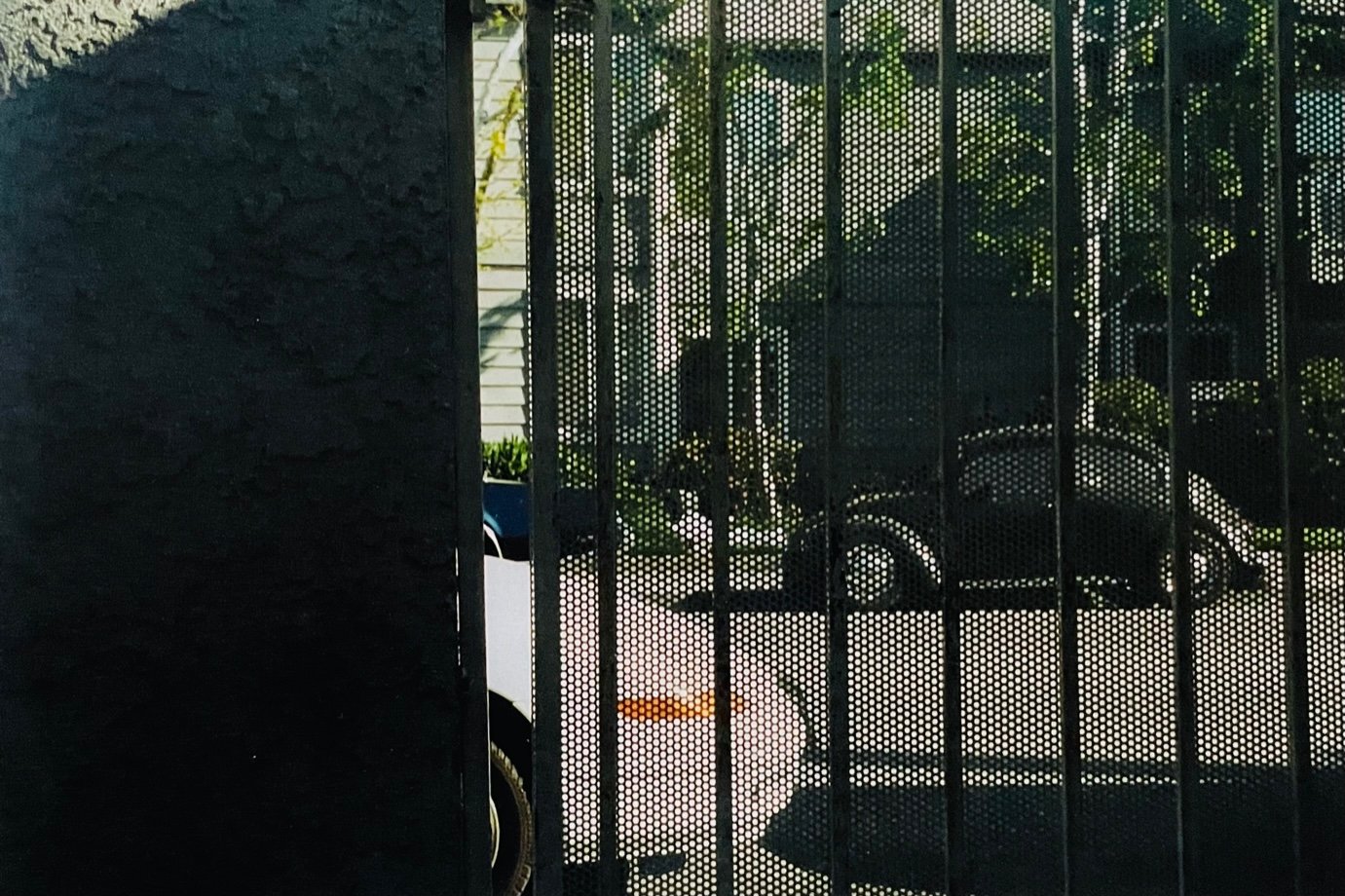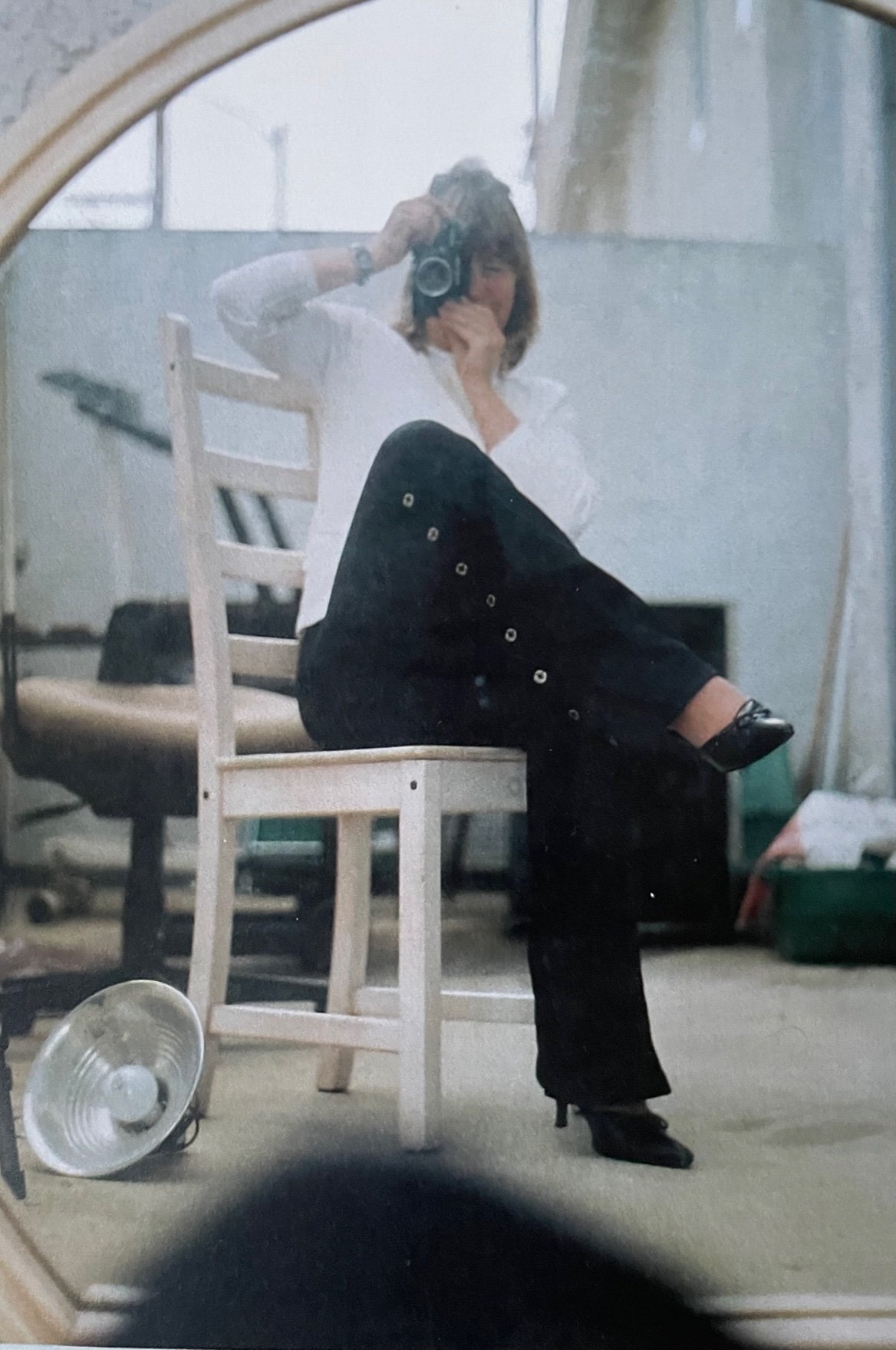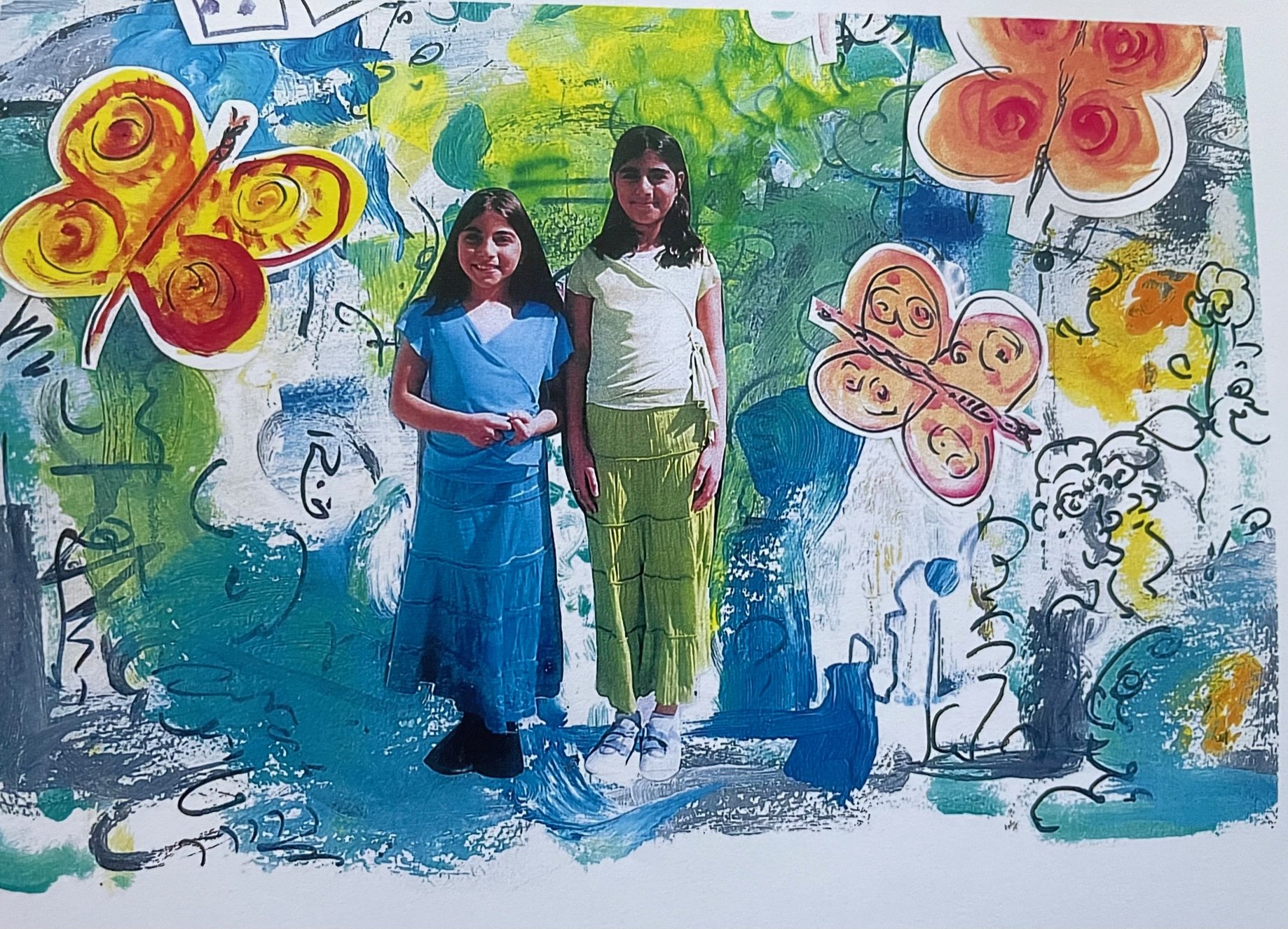Mom’s book, our patio, our rain
When my son came from Houston after graduating he brought his friend with him. I had great subjects to photograph — these young, handsome people and their friends. The new creative generation, right after college, with dreams hidden in their heart: dreams of writing about sports, dreams of publishing a book, dreams of acting. They were the future of this country, hard workers, facing challenges, working jobs without benefits, just holding on to their dreams.
I took pictures of our street, of cars viewed from the patio, of windows, as I was trying to register this moment in time, time still normal and filled with plans for the future. Normality seemed to be a beautiful world now, after 9/11.
I painted canvas — all white with red and gave it a title: “Our sorrows are the soil”. Later I added some more elements and included this canvas in my “Liberty” series.
From now on I didn’t paint colors. I just used what I already had, my art, my photographs, to create collages. If I painted on canvas — it was just a black line, a free-flowing black line across white or gray.
Photos: Street, Self Portrait, Neighbors’ Daughters
~
“Fillow come on out and enjoy it with us! Yeah!”
My voice now, on a recording. A recording from only a week ago — Wednesday, August 9. I’d pressed record because I wanted to bottle this, the sound of this: Mom and I, out on her patio, in the rain. She was lying back on the old, beat-up lounger she’s had out there for years (cardboard now necessary to secure the bottom fabric and its many rips, and then a blanket over top of the cardboard). I was sitting across from her in the broken-down office chair I’d just moved outside, the upholstery underneath scratched through to the sponge from years and years of cats and claws. Rough canvases, these, but this was heaven.
“Mom! It’s raining!” I’d called out earlier — she was upstairs, probably reading. But down she came, and then out onto the patio to join me. I put a fresh blanket down for her, and together like this we just rested there in that delicate rain, our heads tilted up. To feel it. Bask in it after so many blisteringly hot, dry days. More than a cloud — here was a sprinkle. The first drops since I’d arrived two months ago.
The cloud itself was strange — unassuming, basic, not even a rain cloud at all by the look of it. Yet from there, those little drops were now tickling. We laughed into them, we exhaled. Mom said Mmm, and from my pocket I pressed record — as I was trying to register this moment in time, time still normal and filled with plans for the future — as once she’d written.
Here tonight, I press Play, and the rest of the recording now puts those drops back in my ears. I can hear her:
Look at those clouds. Oh Jas, that is so beautiful. That is so beautiful. This is what this life is about. This is what this life is about. It’s about this moment and a sprinkle of rain. It’s about that. Ah! Oh Jas, it’s so beautiful. [exhales] And then rain! Duszek, this is like.. miracle! Because there is no reason for this! To rain, and oh look at this…
My voice now: “Earlier Mom, the sky over my head was blue, not even a cloud, and it was still coming. It’s so nice to feel the earth actually touch you with something.”
Yes.
“And Fillow is here purring, he’s happy. Oh I’m still feeling it! Still feeling it! Come on God, give us some more!”
Because whatever we do we do — good and bad. But whatever God does — it’s only good.
Here, heavy purring becomes audible — this was Fillow, nestled onto my chest.
Only god’s touch is a touch. It’s beautiful. That is so beautiful. Ah. [exhales] Oh Jas, Jas what beautiful – and tonight we have to see the stars.
“OK! Even Fillow seems so happy.” [his purring, heavier now]
Babcia is happy, I think — see, she has now… Geryszewskis. They went to lunch. And Ewa is terrific. Babcia is a very lucky …. Huge huge huuuuge greetings and love and hugs from [them] to you. [Mom had spoken to Ewa on the phone earlier]
Then, Mom talks of some fire in Greece. And I make a comment about an actual-looking rain cloud in the distance, and hopefully it’ll move toward us, because the sprinkle has stopped. I say:
“That was such a sensory hit Mom. Because I went to check on Fillow because he was outside, and I could hear like the sound of pitter-patter, and I couldn’t even see it but only hear it at first — I thought, what!?”
Now I was making some frantic motion with my head, imitating how my eyes darted up and around, confirming the rare summer sprinkle in SoCal. On the recording, she’s laughing. Then several minutes of silence except for the buzzing of a fly, and intermittent whooshes of cars and trucks out on Sepulveda Boulevard. Then Mom says:
I remember when I was a caregiver. In Houston with this lady with Alzheimer’s … and she … and you know, we were looking at the flower bed outside. Pansies. We were looking at the pansies. And she was so happy, this lady. With those pansies. So you know it was all like, the end of her life — but those pansies had power.
“They were hers?”
No, it was a retirement home. But the pansies had a power of making her happy. Nothing made her happy. But the pansies had a power. And I loved those pansies too.
~
Here tonight, the slow and constant roll and woosh of a hydraulic pump inside of an oxygen machine. And the gurgling of the attached water bottle to add moisture. And a thin clear line carrying that oxygen to her nose.
One week.
One week is what it took to take away our rain, our patio, our purr. One week has taken away her legs, her balance, and her voice but for maybe a whispered word now and then. It’s taken away her appetite. Her zest. Her light. It’s taken away Fillow. And left me only now with weakness and these new sounds, and this nervousness at night.
Mostly she’s sleeping now. And nodding yes, or shaking no. And I’m massaging her feet and head. And telling her I love her.
I love you, Duszek, she managed to whisper. Duszek in Polish means little elf, or ghost.
And I’m asking if she wants me to read any of her old poems or pages. She shakes her head no, a bit vigorously even, and this makes me laugh for at least a moment, and then I’m saying, “But your poetry has been helping me.” And I’m saying, “Thank you for being an artist.”
And when I say this, she opens her eyes for a moment.


